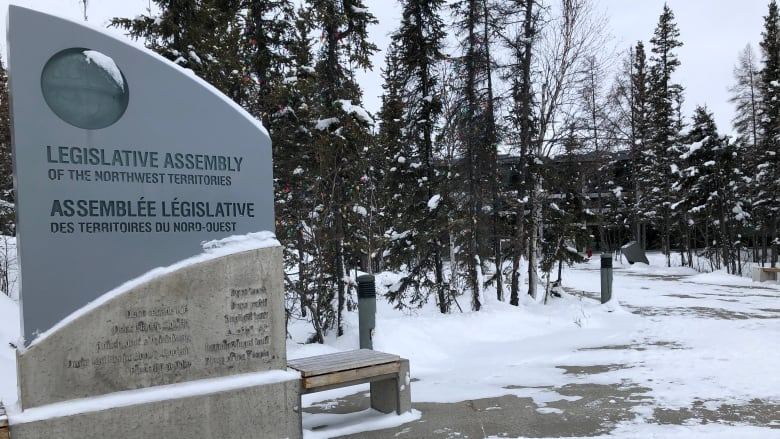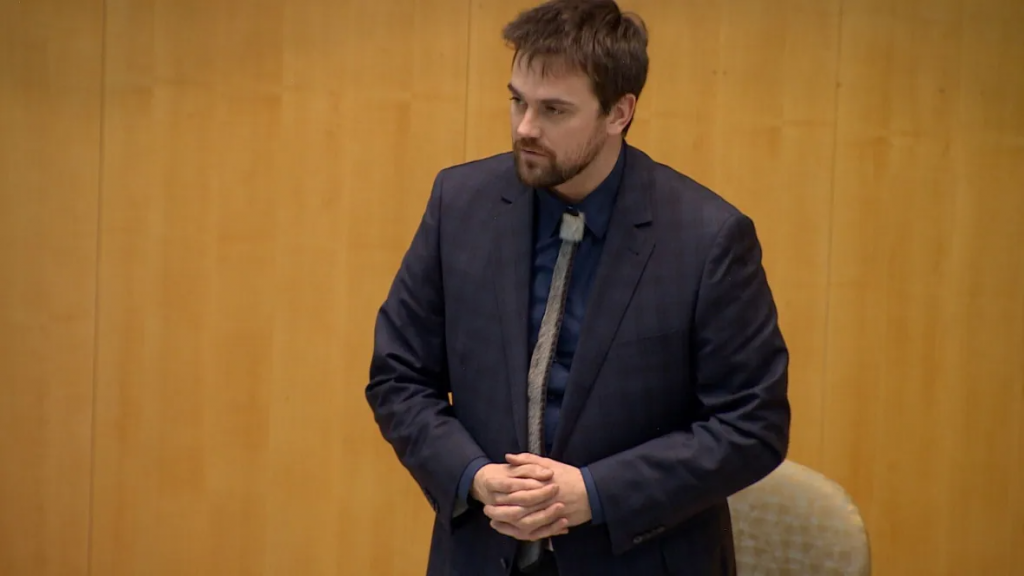N.W.T. passes ‘more realistic’ capital budget

The budget passed with 13 votes in favour, one opposed and one abstention
The government of the Northwest Territories has passed what it’s deemed a “more realistic” capital budget.
The 2023-24 capital estimates allocate $328 million to infrastructure projects the government says it can actually deliver.
Only one member opposed the budget, Rylund Johnson, MLA for Yellowknife North.
Johnson said the Department of Finance hasn’t provided enough public information for him to vote in favour of the budget.
Johnson said he’s repeatedly asked to see an asset management plan outlining what the territory owns, what those assets are worth, what condition those assets are in and how to prioritize improvements.
He said that all N.W.T. communities are required to answer the same questions about their assets to receive funds, but that it’s not something the territory states publicly.
“When the cabinet comes forward and asks for hundreds of millions of dollars in new spending, those questions need to be answered and they need to be answered publicly,” Johnson said. “For that reason, I won’t be in favour of this capital budget.”

Richard Edjericon, MLA for Tu Nedhé-Wiilideh, abstained from Thursday’s vote.
He said that more money should be allocated to housing in the communities and that funds should be given directly to Indigenous governments “so that they can deal with their own housing crisis.”
Having been appointed only earlier this year, Edjericon said many of the decisions had been made before he claimed his seat, but that “as it is right now,” the government isn’t responding to the territory’s housing crisis.
The largest chunk of the budget, 30 per cent, is dedicated to highways and roads. Housing is seeing 11 per cent of the budget, behind both renewable energy and airports and runways.
Though he wasn’t present for Thursday’s vote, MLA for Frame Lake, Kevin O’Reilly spoke earlier in the assembly to spending on the wrong priorities.
On Oct. 19, O’Reilly said that housing should be the government’s largest investment area.
He said he would likely vote against the budget, though he thanked the finance minister for her efforts to reduce over budgeting on capital.
O’Reilly made similar remarks during last year’s budget discussions.
The budget passed with 13 votes in favour, one opposed and one abstention.
Next year’s budget reverses a trend of climbing estimates and is more than a third smaller than the previous year’s $502-million plan.
When the budget was presented last month, the Finance Department said that the Northwest Territories typically spends far less than its estimates and, at times, nearly half of the territory’s capital budget has gone unspent and carries over.
Related stories from around the North:
Canada: Nunavut finance minister tables $2.5 billon budget with focus on housing, CBC News



